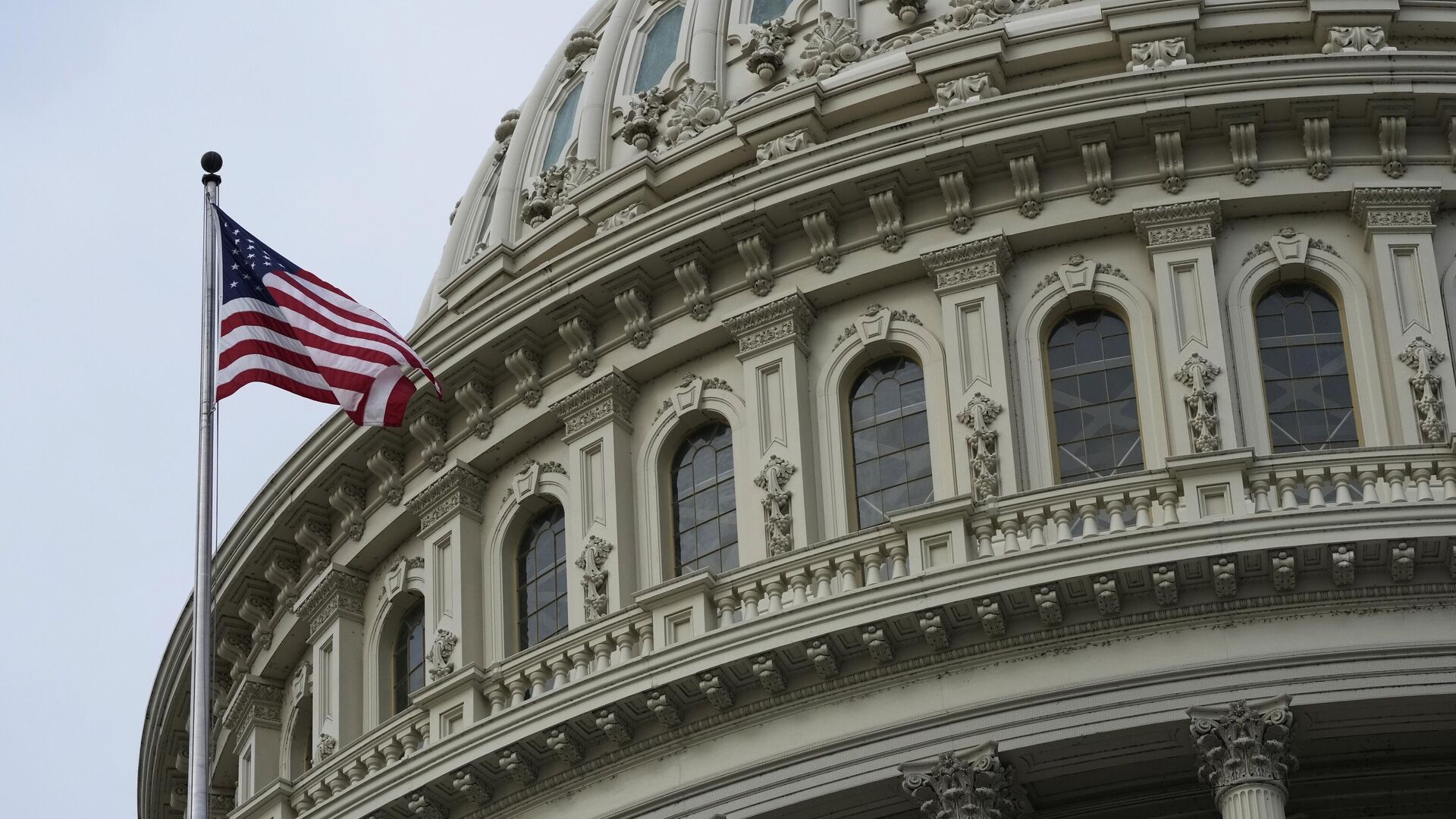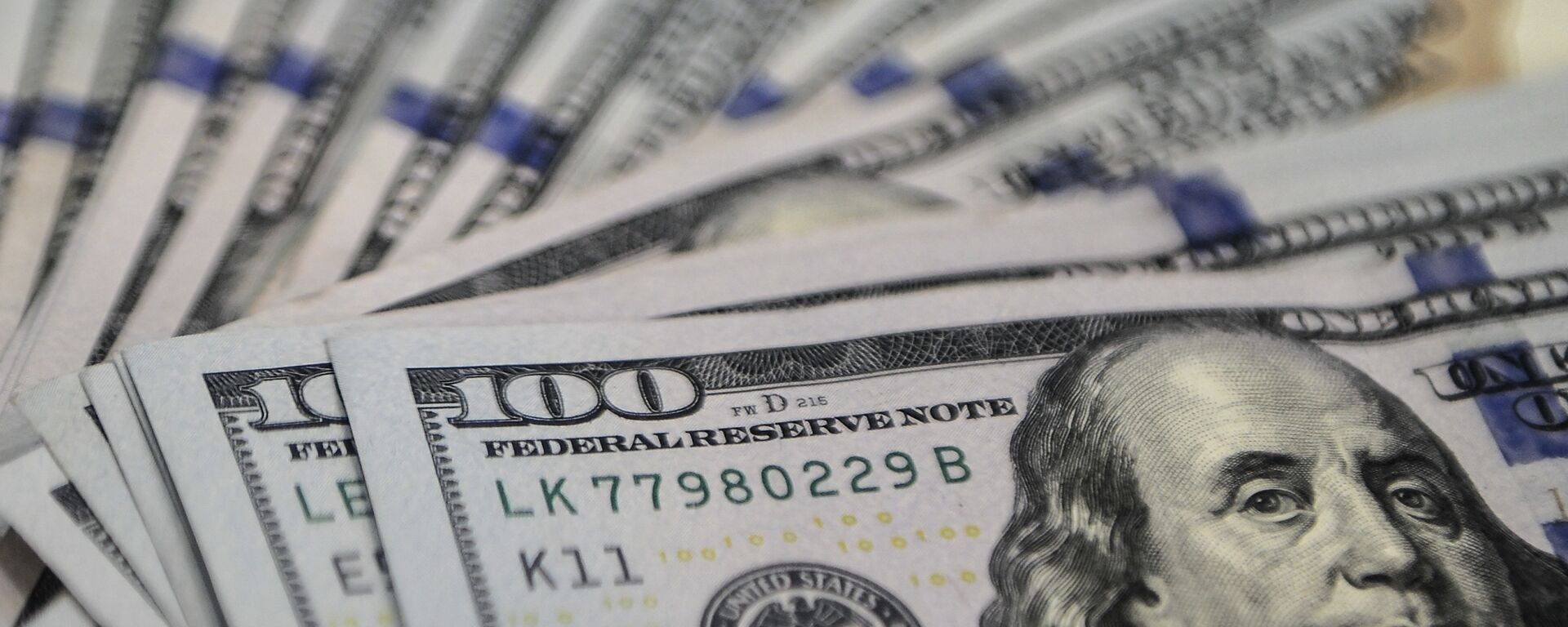https://sputnikglobe.com/20230512/us-facing-significant-risk-of-default-in-first-two-weeks-of-june-1110303989.html
US Facing ‘Significant Risk’ of Default in ‘First Two Weeks’ of June, Forecaster Warns
US Facing ‘Significant Risk’ of Default in ‘First Two Weeks’ of June, Forecaster Warns
Sputnik International
A new report by the CBO has warned that the United States Government faces imminent default on its debts in the first half of June if the impasse over raising the debt ceiling is not resolved.
2023-05-12T21:17+0000
2023-05-12T21:17+0000
2023-05-12T21:16+0000
us debt ceiling crisis
joe biden
kevin mccarthy
treasury
congressional budget office (cbo)
economy
https://cdn1.img.sputnikglobe.com/img/07e7/03/0b/1108283098_0:160:3072:1888_1920x0_80_0_0_47520085ef1a97010fea1df6ff0fd37a.jpg
A new report by the Congressional Budget Office (CBO), a nonpartisan federal budget watchdog, has warned the United States government faces imminent default on its debts in the first half of June if the impasse over raising the debt ceiling is not resolved.According to the Friday report, the US Treasury is set to exhaust the “extraordinary measures” on which it has been relying to pay the government’s bills “at some point in the first two weeks of June.”“The extent to which the Treasury will be able to fund the government’s ongoing operations will remain uncertain throughout May, even if the Treasury ultimately runs out of funds in early June. That uncertainty exists because the timing and amount of revenue collections and outlays over the intervening weeks could differ from CBO’s projections,” the forecaster added.The CBO’s estimation is slightly further out than the Treasury’s, which warned last week that a government default could come as soon as June 1. That projection was made after tax receipts in April yielded a smaller-than-expected volume of cash.Despite the dire warnings, Republicans and Democrats have so far failed to even begin serious talks about resolving the impasse. Both sides continued their posturing on Thursday of blaming the other side for refusing to negotiate, with House Speaker Kevin McCarthy (R-CA), saying talks with US President Joe Biden had been postponed because the Democratic president lacked “seriousness” about the issue.The crisis is of the GOP’s design: wielding a narrow majority in the House after the November 2022 midterm elections, Republicans have sought to use the threat of a debt default to compel Democrats to agree to stiff budget cuts they would not agree to under normal budget negotiations, such as social programs. In January, the GOP refused to pass a bill raising the debt ceiling to allow the appropriation of more funds, forcing the Treasury to adopt “extraordinary measures” to shuffle money around and pay outstanding debt payments.The measures will only work for a time, as the CBO and Treasury have warned. Once they are exhausted, the federal government will default on its debt, destroying the country’s credit rating and plunging it into an economic crisis. A similar showdown in 2011 resulted in S&P downgrading the government’s credit rating from AAA to AA+, even though the two parties agreed to a deal to raise the ceiling and avoid default hours before it was set to occur.
https://sputnikglobe.com/20230501/us-may-hit-debt-limit-as-early-as-june-1-if-congress-fails-to-act-yellen-warns-1110016104.html
Sputnik International
feedback@sputniknews.com
+74956456601
MIA „Rossiya Segodnya“
2023
News
en_EN
Sputnik International
feedback@sputniknews.com
+74956456601
MIA „Rossiya Segodnya“
Sputnik International
feedback@sputniknews.com
+74956456601
MIA „Rossiya Segodnya“
cbo; debt ceiling; default; treasury
cbo; debt ceiling; default; treasury
US Facing ‘Significant Risk’ of Default in ‘First Two Weeks’ of June, Forecaster Warns
Republicans have attempted to use the debt ceiling crisis to force through their own truncated budget, but the effort collapsed earlier this month after rival party factions failed to agree on just how serious the budget cuts should be.
A
new report by the Congressional Budget Office (CBO), a nonpartisan federal budget watchdog, has warned the United States government faces imminent default on its debts in the first half of June if the impasse over raising the debt ceiling is not resolved.
According to the Friday report, the US Treasury is set to exhaust the “extraordinary measures” on which it has been relying to pay the government’s bills “at some point in the first two weeks of June.”
“The extent to which the Treasury will be able to fund the government’s ongoing operations will remain uncertain throughout May, even if the Treasury ultimately runs out of funds in early June. That uncertainty exists because the timing and amount of revenue collections and outlays over the intervening weeks could differ from CBO’s projections,” the forecaster added.
However, it noted that if the government does avoid default by June 15, it could get a short second wind, thanks to “quarterly tax receipts and additional extraordinary measures,” which it says “will probably allow the government to continue financing operations through at least the end of July.”
The CBO’s estimation is slightly further out than the Treasury’s, which
warned last week that a government default could come as soon as June 1. That projection was made after tax receipts in April yielded a smaller-than-expected volume of cash.
Despite the dire warnings, Republicans and Democrats have so far failed to even begin serious talks about resolving the impasse. Both sides continued their posturing on Thursday of blaming the other side for refusing to negotiate, with House Speaker Kevin McCarthy (R-CA), saying talks with US President Joe Biden
had been postponed because the Democratic president lacked “seriousness” about the issue.
“It seems like they want a default more than they want a deal,” McCarthy told reporters.
The crisis is of the GOP’s design: wielding a narrow majority in the House after the November 2022 midterm elections, Republicans have sought to use the threat of a debt default to compel Democrats to agree to stiff budget cuts they would not agree to under normal budget negotiations, such as social programs.
In January, the GOP refused to pass a bill raising the debt ceiling to allow the appropriation of more funds, forcing the Treasury to adopt “extraordinary measures” to shuffle money around and pay outstanding debt payments.
The measures will only work for a time, as the CBO and Treasury have warned. Once they are exhausted, the federal government will default on its debt, destroying the country’s credit rating and plunging it into an economic crisis. A similar showdown in 2011 resulted in S&P downgrading the government’s credit rating from AAA to AA+, even though the two parties agreed to a deal to raise the ceiling and avoid default hours before it was set to occur.



